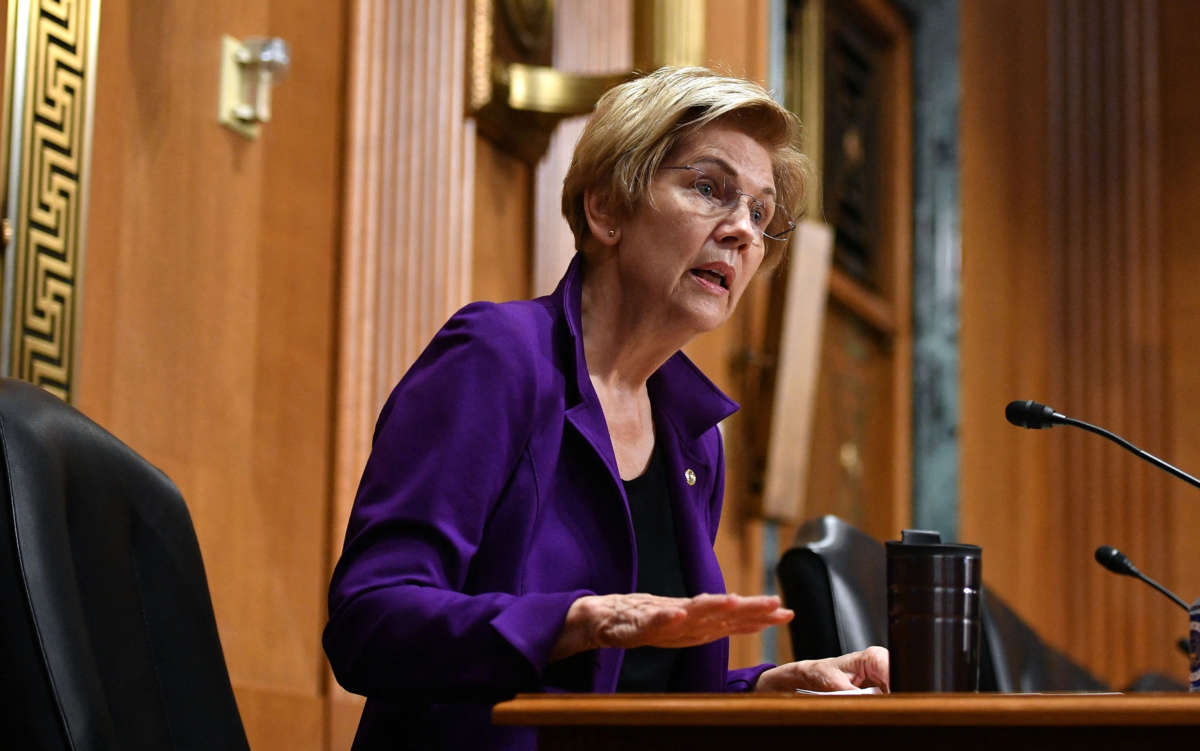On Thursday, Senators Michael Bennet (D-Colorado) and Elizabeth Warren (D-Massachusetts) introduced a bill targeting so-called “zombie” campaign accounts, with the aim of reducing corruption in Washington.
The Zeroing Out Money for Buying Influence After Elections (ZOMBIE) Act would require lawmakers to close campaign accounts and leadership PACs after six months if they don’t plan on running for the same office in the next applicable election cycle before registering as a lobbyist or foreign agent. Those funds could then be returned to donors, given to the Treasury Department or distributed to a charity that doesn’t employ the lawmaker or members of their family.
Currently, unused funds from lost campaigns or retired lawmakers “are ripe for abuse,” Bennet and Warren wrote in a fact sheet on the bill. Though the Federal Election Commission prohibits candidates and lawmakers from using those funds for personal use, they can be donated to advance the individuals’ or their allies’ personal interests. Often, the lawmakers said, those funds are donated to other campaign funds, creating a shady cycle of influence.
“When a politician is no longer running for office or registers as a lobbyist, they shouldn’t have millions in the bank leftover from their old campaigns,” Bennet said. “These zombie accounts help fuel the pay-to-play culture in Washington that is corroding the American people’s faith in our government.”
There is a well-documented revolving door between public officials and private or public sector jobs that can wield significant influence over federal officials and members of Congress. When politicians retire, they often take jobs as lobbyists — jobs that may have been dangled in front of them as lucrative opportunities when they left office. Though there are some restrictions on the revolving door, these restrictions are often subject to political whims and still only chip away at the problem.
Because of the lax rules for leftover campaign funds, former lawmakers and candidates have a wide array of options when it comes to using the money. The former lawmaker could create a foundation in their name; or, because the fund is still open, consultants and family members can receive paychecks even after the politician has died.
As the Daily Beast uncovered in 2019, lawmakers often take advantage of the leftover fund options available to them. In 2018, former Rep. Jim Moran (D-Virginia), then a lobbyist angling to put pressure on Saudi Arabia, suggested edits for a letter advancing his own efforts that would be written under Rep. Charlie Crist’s (D-Florida) letterhead. Crist, who is still in office, obliged — and soon after, his reelection campaign received $1,000, taken from Moran’s “zombie” campaign coffer.
The Daily Beast, along with the Campaign Legal Center and the Center for Responsive Politics, uncovered at least 16 additional former members of Congress who kept using their campaign funds even after they retired into jobs as foreign agents. At least nine of those former members used campaign funds to donate directly to lawmakers that they were lobbying.
The ZOMBIE Act “highlights an egregious abuse, as politicians leaving office have the freedom to use leftover money in their campaign accounts to ensure stronger access for their new employer to Congress or to glorify their legacy,” said Lisa Gilbert, Executive Vice President of Public Citizen. “This money was donated for a single purpose, electing a candidate, and should not be misappropriated.”
This isn’t the first time Warren has targeted corruption in Washington. Last month, she sent a letter to major accounting firms demanding documentation on the revolving door between influential jobs at agencies like the Internal Revenue Service (IRS) and the Treasury Department and top positions at accounting firms. Executives and staff at firms like PwC will often take jobs at government agencies to shape policies to benefit their former employer and then return to private sector jobs, where they are rewarded with bonuses or other incentives.
Join us in defending the truth before it’s too late
The future of independent journalism is uncertain, and the consequences of losing it are too grave to ignore. To ensure Truthout remains safe, strong, and free, we need to raise $46,000 in the next 7 days. Every dollar raised goes directly toward the costs of producing news you can trust.
Please give what you can — because by supporting us with a tax-deductible donation, you’re not just preserving a source of news, you’re helping to safeguard what’s left of our democracy.
